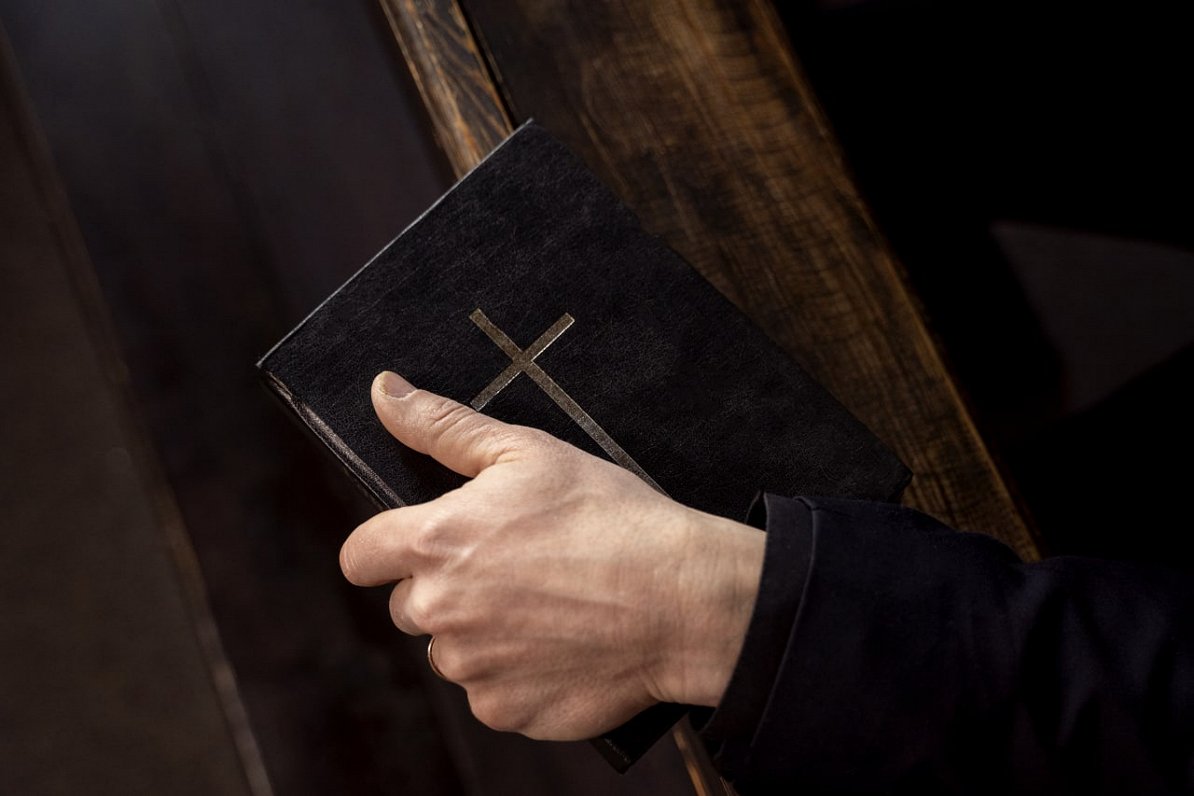There are currently around 1,500 registered religious organizations in Latvia. The number has remained fairly constant for years. However, last month the Register of Companies decided to terminate the operation of seventeen religious organizations for failure to submit their annual reports.
The Ministry of Justice concludes that it is likely that the organizations are not actually functioning.
Olga Zeile, director of the Ministry of Justice's Industry Policy Department, does not reveal who these organizations are.
"The deadline for religious organizations to challenge the decision on termination of activity has not yet expired. Therefore, it [the decision] is not yet enforceable. As soon as that deadline expires, you will probably be able to see entries of the names of the relevant organizations in the register," Zeile says.
"I don't know how correct it would be to talk about it now, because the regulation is relatively new. We have done what the law requires, which is to issue two warnings to religious organizations that have not submitted reports on their activities. We have tried to contact them and set a new deadline for submitting the report, the organizations have not done so, therefore the register has also been asked to make such a decision."
The period for contesting the decision ends on Thursday, November 17.
Organizations can also be terminated if they cannot be reached at their legal address, as well as if they have no designated board for more than six months.
The legality of the activities of religious organizations is monitored by law enforcement agencies, anyone who suspects violations by an organization can file a complaint with the law enforcement officers. Then, if the violations are confirmed and recognized by the court, the activity of the religious organizations is terminated.
"For example, the Prosecutor General can go to court if the religious organization, with its activities and teachings, threatens the democratic state system, national security, public security, such as public order, the health of other persons, morals," explains Zeile.
Last year the Prosecutor General appealed to the court with a claim for the termination of the activities of the Evangelical Christian sect "Jaunā paaudze".
The investigation carried out by the Prosecutor's Office found that the organization held public events no less than six times during the pandemic restrictions, despite the fact that it was subject to administrative penalties for such violations.
However, until a court verdict, organizations can continue their activities. But even if the activity of an organization is officially stopped, no one prevents it from continuing to express its views.
"Registration of a religious organization does not legalize the form of freedom of expression of a religion. In other words, citizens are free to express their religious beliefs even without establishing a religious organization. The only thing is that when a religious organization is established as a legal entity, it is possible for this subject to participate in the civil legal system - to undertake obligations, fulfill obligations, which can therefore facilitate [the activity] in some aspects, but a person can focus on his religion alone or together with others without founding a religious organization," says Zeile.
Does legal status also mean the right to apply for state aid?
"Currently, the regulatory enactments provide that the state participates, for example, in the preservation of sacred heritage, such as cultural and historical monuments," says Zeile, "and there is a certain procedure in which religious organizations can apply for it. But such a general statement that, when establishing religious organizations can apply for state support, in principle - no. This is not the case. Then each case would have to be viewed individually."
The Law on Religious Organizations provides that each person has the right to establish only one religious organization. However, this does not prevent, for example, other church members from starting an organization anew.
Even if a religious organization is declared legally defunct, this does not prevent members from coming together and expressing their religious beliefs.





























